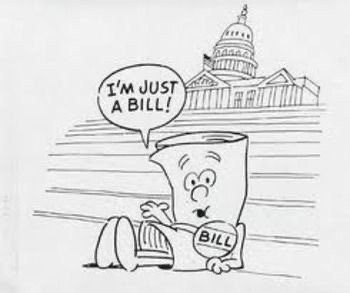I’m sure you have heard “New Year, new me.” California’s legislative branch has remixed the saying, which can now be called “New Year, new bills.” The 2024 Reparations priority has emerged as a significant step in acknowledging historical injustices, marking a historic shift toward social justice. The goal of this groundbreaking law is to confront the legacy of institutionalized racism and oppression, which has historically affected ethnic communities. The legislation aims to create the foundation for a more inclusive and fair future while the country wrestles with its history. The 2024 Reparations Priority Bill is a fresh attempt to address the long-lasting effects of past injustices, even if the demand for reparations is not new. The law recognizes the historical abuse and exploitation of underprivileged groups, especially African Americans. African Americans have endured bigotry and cruelty without apology since the dawn of time. We have managed to overcome hardships, including slavery and segregation, but we have never made up for the pain and suffering we endured. Recognizing the past wrongs done to our communities, including the effects of forced relocation, segregation, slavery, and other kinds of systematic oppression, is a crucial part of the reparations measure that will be implemented. This acknowledgment is an essential first step in developing a national dialogue on the importance of reparations. A vital element of the bill is the establishment of a reparations commission, whose duties include researching historical injustices, recording their effects, and  suggesting concrete reparations. This impartial council will comprise professionals, historians, community representatives, and policymakers to ensure a thorough and educated approach to reparations.
suggesting concrete reparations. This impartial council will comprise professionals, historians, community representatives, and policymakers to ensure a thorough and educated approach to reparations.
Financial Compensation and Resources
The 2024 Reparations Priority Bill strongly emphasizes providing monetary reparations to address economic inequalities resulting from past injustices. Addressing systematic disparities at their source also allows funds for investments in housing, healthcare, education, and economic growth within impacted communities. Programs for community development: The bill strongly emphasizes community development programs to promote long-term sustainability. By offering tools for small business development, job training, and education, these programs aim to strengthen communities.
Truth and Reconciliation initiatives: The bill supports efforts for truth and reconciliation in addition to monetary compensation. Fostering understanding and unification among all Americans entails publicly acknowledging historical injustices and educational initiatives for historical and community-building projects. This bill has its share of difficulties and debates, even though it is intended to be a significant step in redressing past wrongs. Reparations opposers claim that it is hard to decide who should be compensated and that this issue could further cause division in communities. The truth is division will always exist, but it’s better if the cause is to benefit the oppressed parties. Concerns around potential unforeseen repercussions, like the financial strain it could hold on the government, also exist. The risk could be worth it because this country and its foundation were built on the backs of many of our ancestors, so I believe this is more than considered in the U.S. government budget. The 2024 Reparations Priority Bill should not be seen in a negative light but as an act to mend rifts and advance an already inclusive society by instituting restructuring, investing in impacted areas, and admitting wrongs committed in the past. This bill offers a chance for a national dialogue about the significance of recognizing and redressing past injustices as we move forward.







